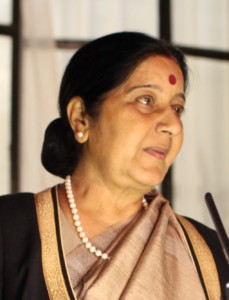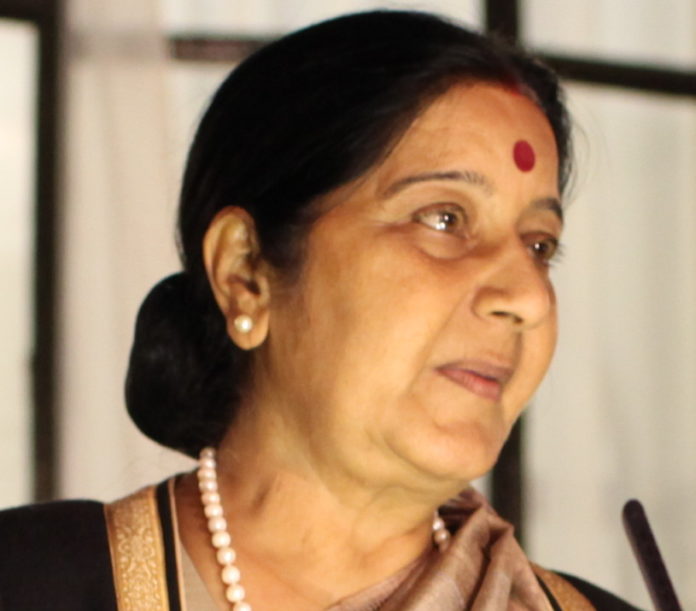New Delhi– India on Thursday rejected China’s demand for withdrawal of troops from the Doklam border area, saying the pull out should be from both sides for a dialogue to be held for resolving the month long military stand-off at the tri-junction in Sikkim sector.
On its part, China kept up its belligerence saying Indian withdrawal is a pre-condition for any dialogue to take place.

In the first exhaustive Indian comments on the border row, External Affairs Minister Sushma Swaraj accused China of “unilaterally” trying to change the status quo at the tri-junction on the frontier with Bhutan.
She told the Rajya Sabha that while China was saying India should withdraw its troops from Doklam for negotiations to begin, India is saying that both countries should withdraw their troops.
“They (China) are demanding that we should withdraw our forces… We want that if a dialogue is held, and if talks are to be held, then both the countries should withdraw their troops. From India’s side, no unreasonable demand is being made.. All countries are with us, as they all feel that China is being aggressive on a small country like Bhutan. Bhutan has lodged a written protest.”
“All countries feel that India’s stand in the matter is not wrong. Truth is on our side,” she added.
The Minister said the Chinese action “is a challenge to our security” and India was not doing anything unreasonable.
In Beijing, Chinese Foreign Ministry spokesperson Lu Kang reiterated that no talks would be held with India until it withdrew troops from Doklam.
“Our diplomatic channel is unimpeded and the withdrawal of the Indian border troops is the precondition for any meaningful dialogue and the communication between the two sides,” Lu said.
Lu said Indian troops “illegally trespassed into Chinese territory”.
The military tension over the Himalayan tri-junction between the two countries that share a 3,500-km boundary started more than a month ago when Indian troops stopped Chinese soldiers from building a road at the stretch where India and China connect with Bhutan.
The stand-off has hit India-China ties with Chinese experts threatening a war if New Delhi did not buckle.
Sushma Swaraj accused China of violating the terms of a written agreement reached between India, China and Bhutan in 2012.
“Over the years, China has been trying to get closer and closer to where the tri-junction point ends. It has done things like repair roads, re-tar them and things like that.”
She described what was different about the June 16 incident that led to the stand-off.
“This time though, they came with bulldozers and construction equipment with the aim of breaching the point where the tri-junction ends. That is a threat to our security,” she said.
“As long as it was between China and Bhutan about their border dispute, we had no problem. But when it comes to tri-junction, our interests came into the picture. They want to come down to Batang La.”
Amid the bilateral deadlock, External Affairs Ministry spokesperson Gopal Baglay confirmed that National Security Advisor Ajit Doval was visiting Beijing on July 27-28 for a security meeting of the five-nation BRICS grouping.
Baglay said “India’s approach has been to find peaceful resolution of all matters concerning the border with China” but refused to share the details on what kind of diplomatic channels the two countries were using to ease the border tension.
“I would not like to go into the details of how and between whom and when such conversations have taken place, if they have taken place,” he said, during his weekly briefing.
“Every responsible power, every responsible person and player in the world, of course, prefers peaceful resolution of matters that are in hand,” he said. (IANS)














